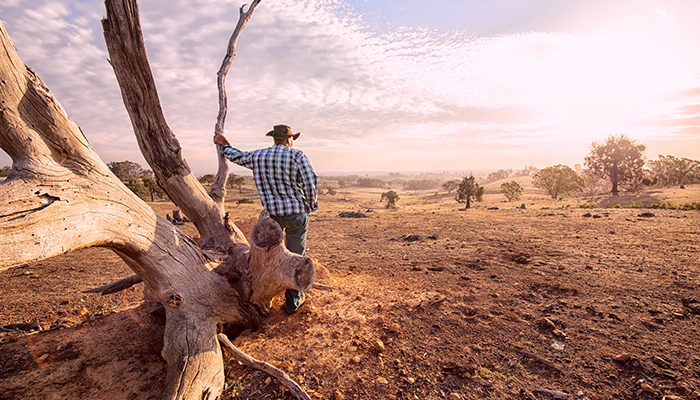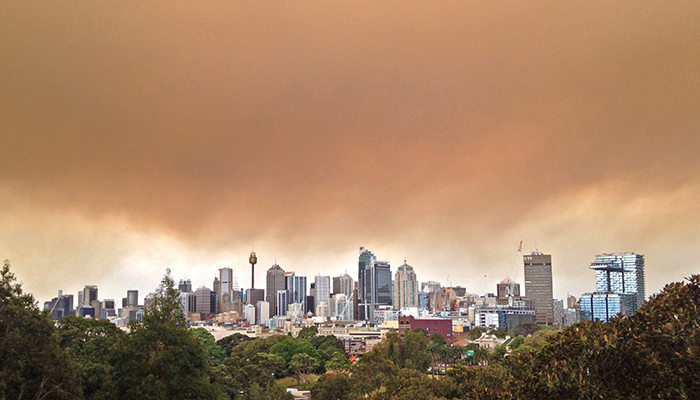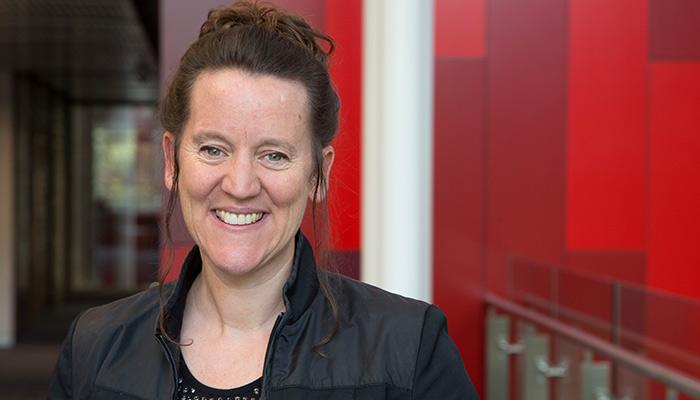THE ENVIRONMENT
Drought, fire, smoke-filled skies and record heat usher out a decade of inaction on the environment, writes Peter Davies, Associate Professor in Macquarie University’s Department of Environmental Sciences.
The millennium drought preoccupied residents across Australia during the first decade of the century. Water reuse and recycling and desalinated water factories entered our vernacular with government policy and funding following closely behind. As the drought broke, so did the momentum of reform. Perhaps this is emblematic of the decade, the 2010s, where our nation’s environmental consciousness went to sleep.

Havoc for farmers: Dust storms have become increasingly common across regional Australia as droughts have intensified.
The last few months may prove to be the wake-up call. While environmental scientists provide ever-increasing statistical certainty of the current state and future condition of air, soil, water, plants and animals, the tangible realisation is that our days and nights are getting hotter, bushfires no longer are bound by the summer months, more species are pushed to extinction and at a personal level, it’s just becoming difficult to breath.
While governments speak of making our cities and regions more liveable, this goal is increasingly juxtaposed by the reality of the pressures placed on our environment.
The long tradition of science to support evidence-based decision-making may well be rekindled within the corridors of power over the coming decade. This will not be the result of ‘better’ science, as this is what we have and continue to do. Rather, it may be that the value of environmental science is increasingly being realised by the young and old, our captains of industry and those on the shop floor, and by our elected officials and those that put them in office.
Climate change and all it entails has been a socially and politically divisive agenda in Australia. Maybe this is because the collective ‘we’ cannot see the accumulation of carbon in the atmosphere.
Perhaps the floodgates are yet to open on our leaders who continue to enjoy the front seat yet remain glued to the rear vision mirror.
But recent weeks have revealed a sky full of smoke, ash and dust. Not only has this been visible, it is directly impacting our lives and is providing the tangible manifestation that our environment is under pressure. Our scientists continue to provide world-leading research but the path to transition is complex. Social activism and industry attention may prove to be the levers that provide the political tipping point to prioritise the environment.
Acts of rebellion a step towards change
We have seen our future leaders recently take time from school to protest on the inaction of climate change, plastics in the ocean and express a general concern for their future wellbeing.

In the line of fire: A view of the Sydney skyline blanketed by smoke during the 2013 bushfires. Credit: Flickr/Andrea Schaffer.
These acts of rebellion are reminiscent of the social and environmental activism of the 1960s and 70s that led to many of the environmental laws, planning decisions, national parks and controls on chemicals we take for granted today. The impact of the incremental understanding of our environment is trickling through. Perhaps the floodgates are yet to open on our leaders who continue to enjoy the front seat yet remain glued to the rear vision mirror.
Sciences must come together
The decade ahead must bring the physical and social sciences together in order to understand and more importantly address the complex problems before us. As humanity has created new environments, not all of them good, it must also assume the responsibility to address the problems.
Some will put a belief in technology as the saviour, and call out to our engineers. Others will turn to community empowerment to shift behaviours, where our social scientists come to the fore.
For our environmental scientists, they must keep a focus on providing impactful research to not just measure and monitor change, but offer solutions and pathways. Research needs to partner, complement, scaffold and magnify the work of governments, industry and the community. The challenges are too great for individual brilliance, but first we need to act on the wake-up calls our environment is sending us.
Associate Professor Peter Davies is Interim Head of the Department of Earth and Environmental Sciences.
A Decade in Review:
- Health and Medicine - How drugs and treatments developed in the 2010s are improving the outlook for sufferers of diseases from melanoma to cystic fibrosis.
- The Economy - Major advances in information and communications technologies such as Uber, Airbnb and Amazon are threatening traditional business models.
- Politics - Reason for hope as Australia holds steady amid rising global instability.



